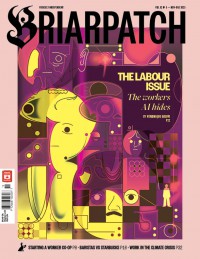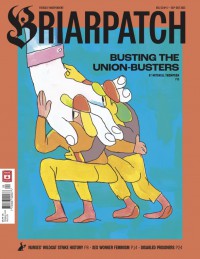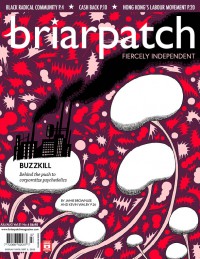-
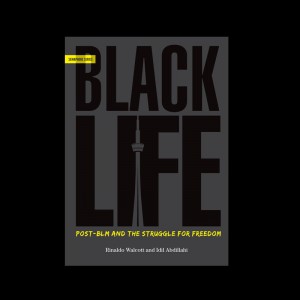 Magazine
MagazineThe Canadian state and Black disregard
If “the 1990s were Black,” why is anti-Blackness still cemented into Canadian society today? Phillip Dwight Morgan reviews Rinaldo Walcott and Idil Abdillahi’s BlackLife: Post-BLM and the Struggle for Freedom.
-
 Magazine
MagazineMarvellous Grounds
Marvellous Grounds – a new collection of writing from Between The Lines Books – rewrites the archives of Toronto’s white cis gay history to foreground the struggles and joy of queer and trans people of colour.
-
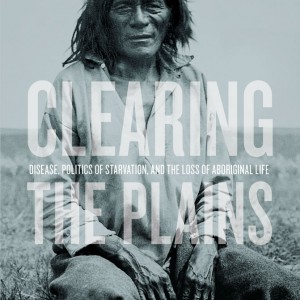 Magazine
MagazineClearing the plains
Famine was a deliberate policy weapon used to coerce “unco-operative Indians” onto reserves and remove them from lands coveted by white settlers.
-
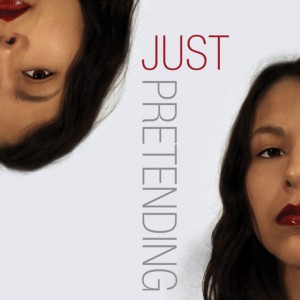 Magazine
MagazineJust pretending
Who am I? At some point or another, we have all asked ourselves this simplest of questions.
-
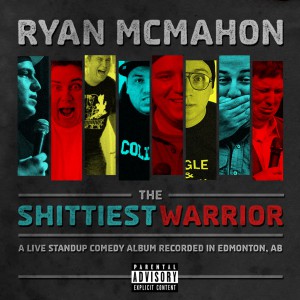 Magazine
MagazineThe shittiest warrior
Comedian Ryan McMahon delivers his reflections on racism and colonialism, all perfectly punctuated with hilarious bouts of fury.
-
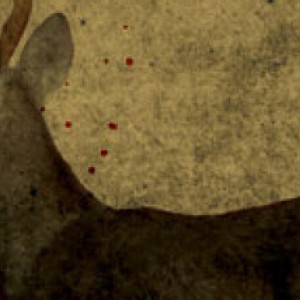 Magazine
MagazineAn accidental scarring
Whitetail Shooting Gallery follows cousins and neighbours Jennifer and Jason as they grow up in the stark landscape of the Bear Hills near Saskatoon.
-
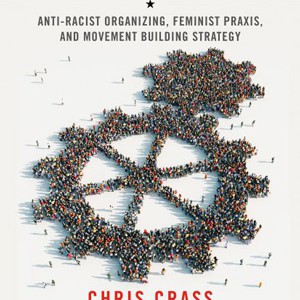 Magazine
MagazineGood ideas are not enough
Crass sees “collective liberation” – a term borrowed from an essay by bell hooks – as a “vision of what we want and a strategic framework to help us get there.”
-
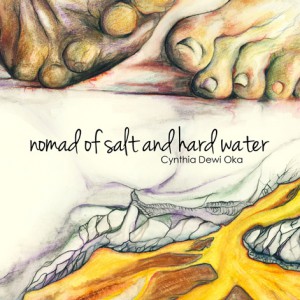 Magazine
Magazinecompass/check/pulse point
Cynthia Dewi Oka’s first collection of poetry, nomad of salt and hard water (Dinah Press), drops anchor in the transoceanic struggle of bodies against borders
-
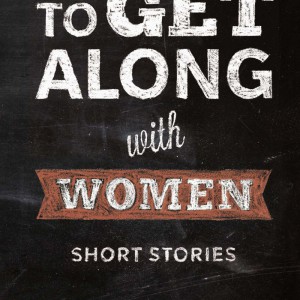 Magazine
MagazineStories mapping place and power
How to Get Along With Women is a finely written collection exploring the ways our identities, our most intimate relationships, and our experiences can be shaped by the world we inhabit, a world mapped by dynamics of power.
-
 Magazine
MagazineA steady lens and a dangerous weapon
“Healing is a challenge in life. It is a victim’s sole obligation,” he says. “Forgotten wounds cannot be healed. So I film to heal.”
-
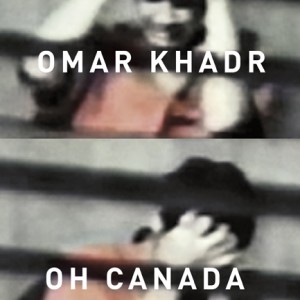 Magazine
Magazine“Dreams are the worst right now”
After a decade of captivity, Omar Khadr, the first child ever convicted of a war crime, became the last Western citizen to be repatriated out of Guantanamo Bay.
-
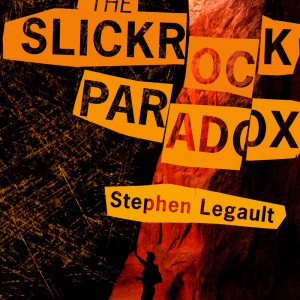 Magazine
MagazineMonkeywrench murder mystery
The Slickrock Paradox, by Alberta-based mystery author Stephen Legault, wraps its twisting plot around one central mystery. There are crimes for the protagonist to solve, including more than one murder, but they are almost peripheral; the core riddle is the absence of a body.
-
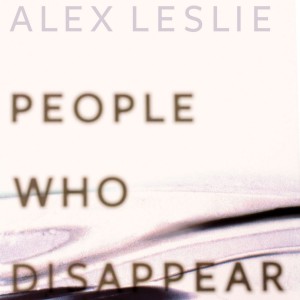 Magazine
MagazineHeartbreaking vanishing acts
Leslie’s primary interest is in people, and the things that haunt us or turn them into ghosts: love, desire, the search for identity.
-
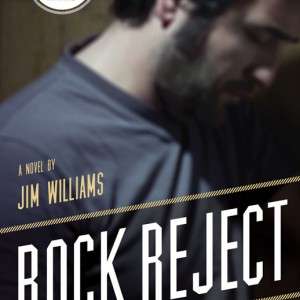 Magazine
MagazineTragic yet hopeful tales of inner struggle and solidarity
Rock Reject shares the chance to share the stories of the ghosts of Cassiar, tales of inner struggle and political solidarity that are tragic but ultimately hopeful.
-
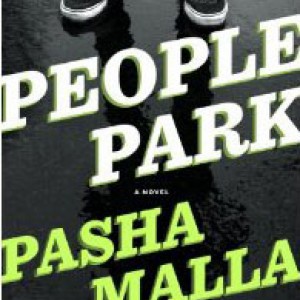 Magazine
MagazineAn absurd apocalypse
In the simplest terms, the book is about the Silver Jubilee of People Park, the Central Park stand-in of Malla’s unnamed island city-state; a city that feels as if it might have been stitched together by hallucinatory cartographers from dream maps of Toronto, Montreal and Manhattan.
-
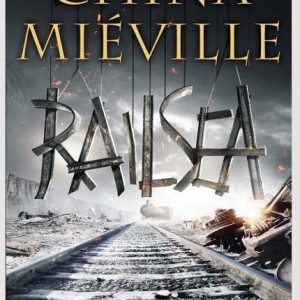 Magazine
MagazineCaptain Naphi and the great white mole
The origin of the railsea is unknown. Some say the gods put down the train tracks or that they extruded from the ground like exposed fossils. Others say that the rails were written “in heavenly script, that people unknowingly recited as they travelled.”
-
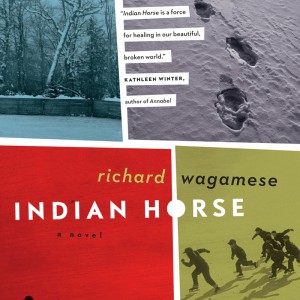 Magazine
MagazineA powerful medicine
Indian Horse illuminates Canada’s devastating past in an important contribution to the genre of sport fiction.
-
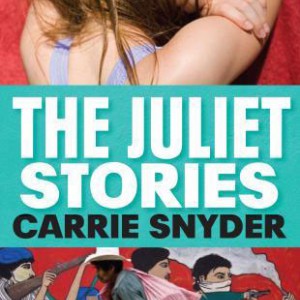 Magazine
MagazineThe Juliet stories
The simple, graceful prose of the book’s first half is crafted by a careful, knowing heart; Snyder, like Juliet, lived in Nicaragua as a child, when her parents moved there to protest the Contras.
-
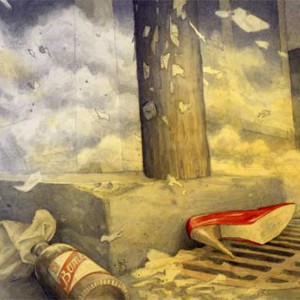 Magazine
MagazineCrime, love, and rebellion: Stories of working-class tragedy
Many of the stories fall within the noir tradition that noted crime author Dennis Lehane defines as working-class tragedy. “In Shakespeare, tragic heroes fall from mountaintops,” he writes. “In noir, they fall from curbs.”
-
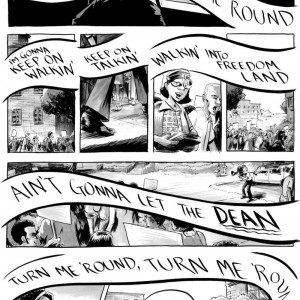 Magazine
MagazineNot help, but solidarity
The Silence of Our Friends asks important questions. How are racist attitudes internalized or rejected by children? What does it take to earn the trust of others across boundary lines marked by race privilege? And, how can we make progress in the struggle against oppression?

